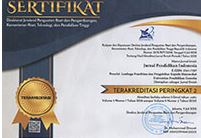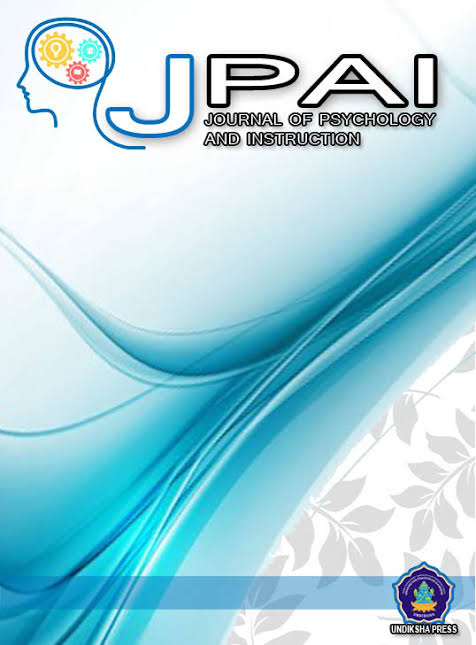*) Journal of Psychology and Instruction is Accredited Sinta 3 by the Indonesian Ministry of Education, Culture, Research and Technology
Publication Ethics
JPAI (Journal of Psychology and Instruction) is a journal published by Lembaga Penelitian dan Pengabdian kepada Masyarakat (LPPM) Universitas Pendidikan Ganesha . This statement explains the ethical behaviour of all parties involved in publishing articles in this journal, namely: authors, editors, reviewers, and publishers.
Duties of Authors
Reporting standards
The author writes every reference used in the manuscripts according to the rules of scientific writing. Authors should present an accurate account of the work performed as well as an objective discussion of its significance in their manuscripts. The data should be represented accurately in the paper. A paper should contain sufficient detail and references to permit others to replicate the work. Fraudulent or knowingly inaccurate statements constitute unethical behaviour and are unacceptable.
Originality and Plagiarism
The authors should ensure that they have written entirely original works, and if the authors have used the work and/or words of others that this has been appropriately cited or quoted.[MOU1]
Multiple, Redundant or Concurrent Publication
An author should not in general publish manuscripts describing essentially the same research in more than one journal or primary publication. Submitting the same manuscript to more than one journal concurrently constitutes unethical publishing behaviour and is unacceptable[MOU2] .
Duties of Editors
- Publication decisions
The selection of the submitted articles is the responsibility of the editors of JPAI (Journal of Psychology and Instruction). The editors may be guided by the policies of the journal's editorial board and constrained by such legal requirements as shall then be in force regarding copyright infringement and plagiarism. The editors may confer with other editors or reviewers in making this decision. - Fair play
An editor at any time evaluate manuscripts for their intellectual content without regard to race, gender, sexual orientation, religious belief, ethnic origin, citizenship, or political philosophy of the authors.
An editor will make sure the article matches the focus / scope of the journal's science. Responses from reviewers will be used as a basis for the Editor to determine whether an article is acceptable, accepted with revision (accepted with major / minor revision), or rejected (rejected). The order of publication is adjusted to the order in which the articles are entered and the article's revision to the editorial board.
Privacy
Editor might be not revealing any information about the manuscripts which submitted to anyone other than the author. The names and email addresses entered in this journal site will be used exclusively for the stated purposes of this journal and will not be made available for any other purpose or to any other party.
Conflict of interest
Unpublished data but disclosed in the manuscript may not be used in the editor's own research without the written agreement of the author.
Duties of Reviewers
Contribution to Editorial Decisions .
Reviewers of JPAI (Journal of Psychology and Instruction). assist the editors in making editorial decisions. Assistance provided by reviewer concerns content review of a manuscript/ article. Furthermore, through the editorial communications with the author may also assist the author in improving the paper Review must be conducted objectively with supporting arguments according to scientific rules.
- Confidentiality.
Any manuscripts received for review must be treated as confidential documents. They must not be shown to or discussed with others except as authorized by the editor. Every manuscript received for reviewing must be preserved as a confidential document. Manuscripts may not be displayed or discussed with others except as authorized by the editor.
Duties of Publisher
Universitas Pendidikan Ganesha (Undiksha) and Undiksha Press as publisher of this Journal take their duties of guardianship over all stages of publishing extremely seriously and we recognize our ethical and other responsibilities. We are committed to ensure that advertising, reprint or other commercial revenue has no impact or influence on editorial decisions. In addition, Undiksha, Undiksha Press, and Editorial Board will assist in communicating with other journals and/or publishers where this is beneficial and necessary










